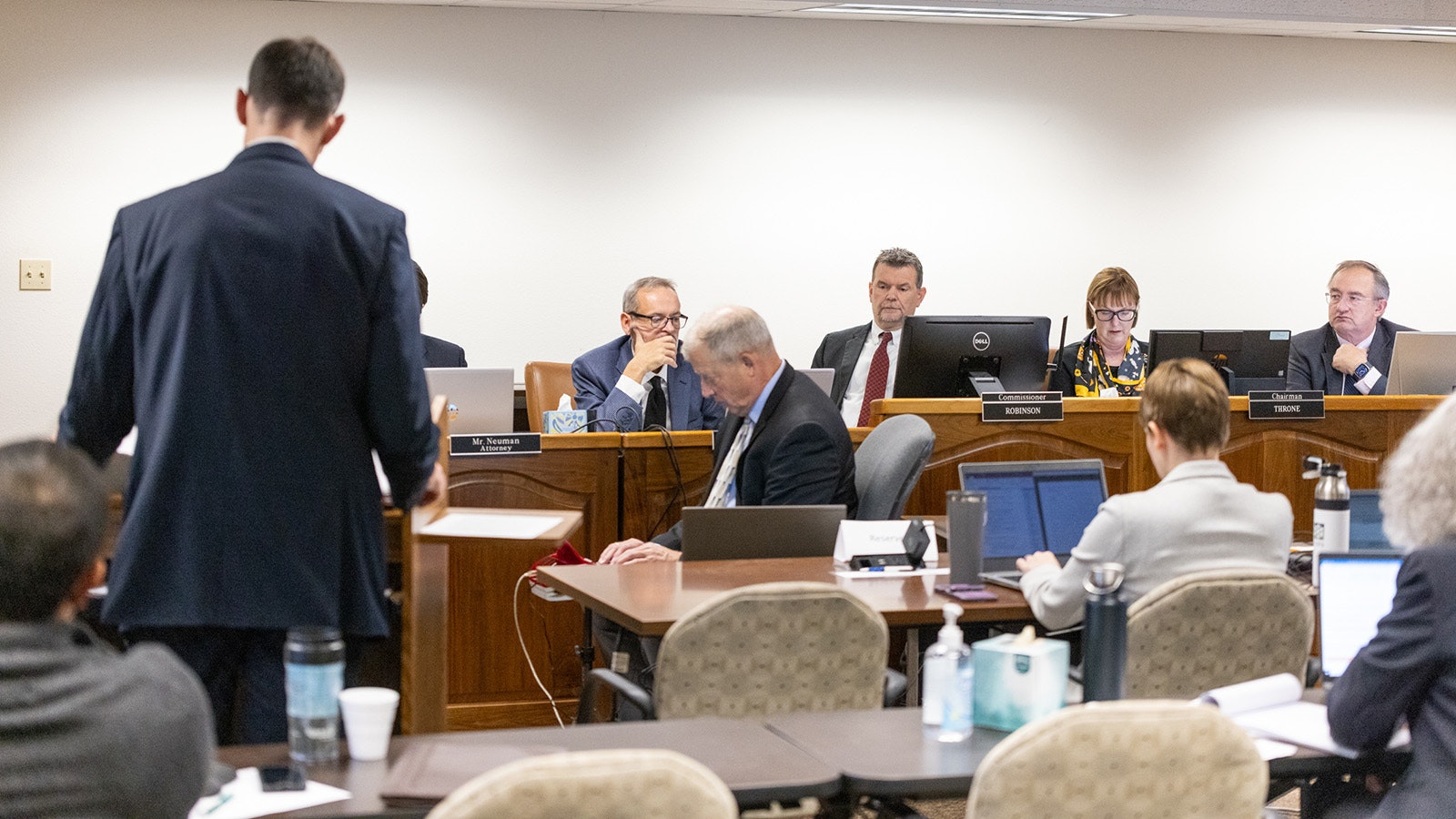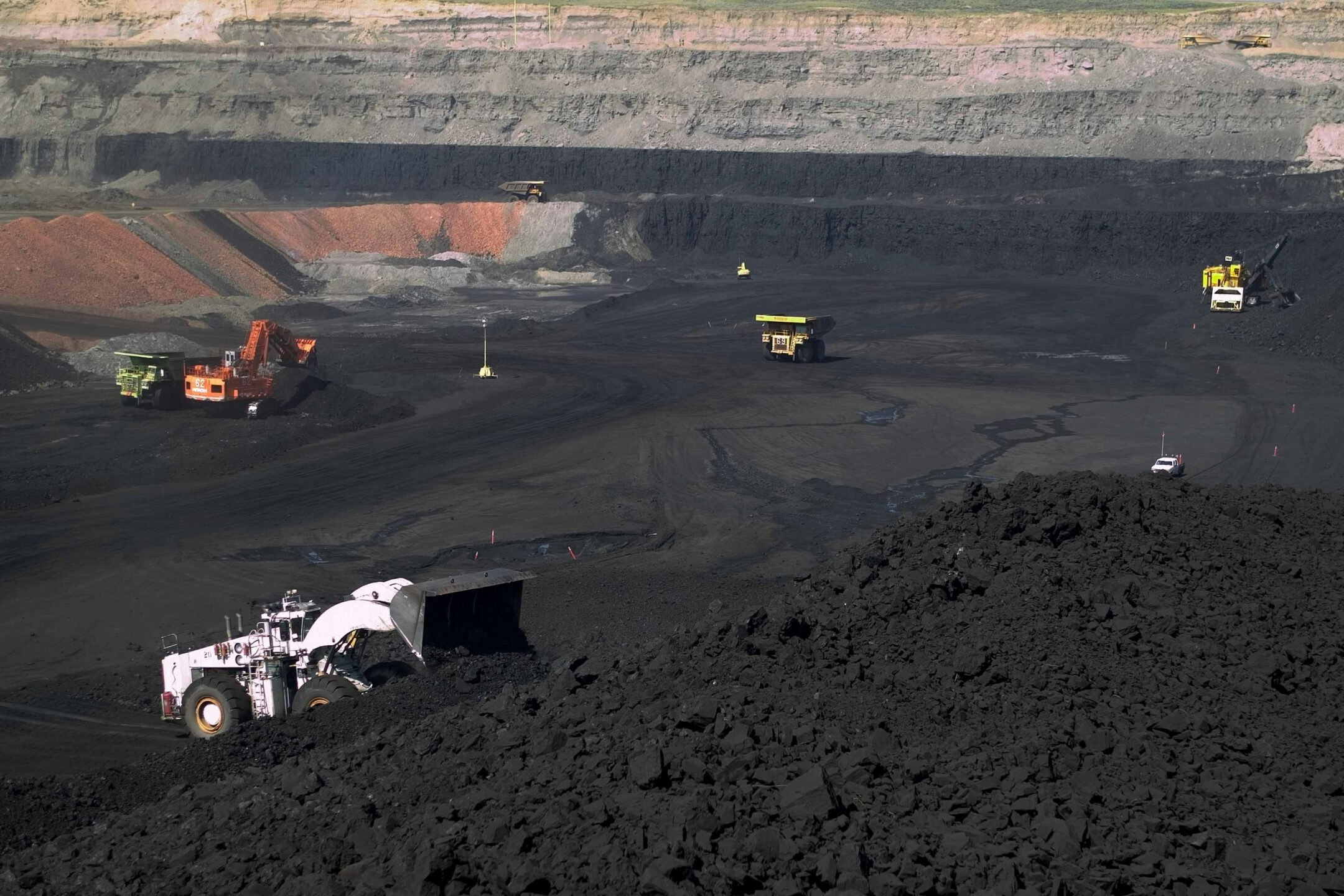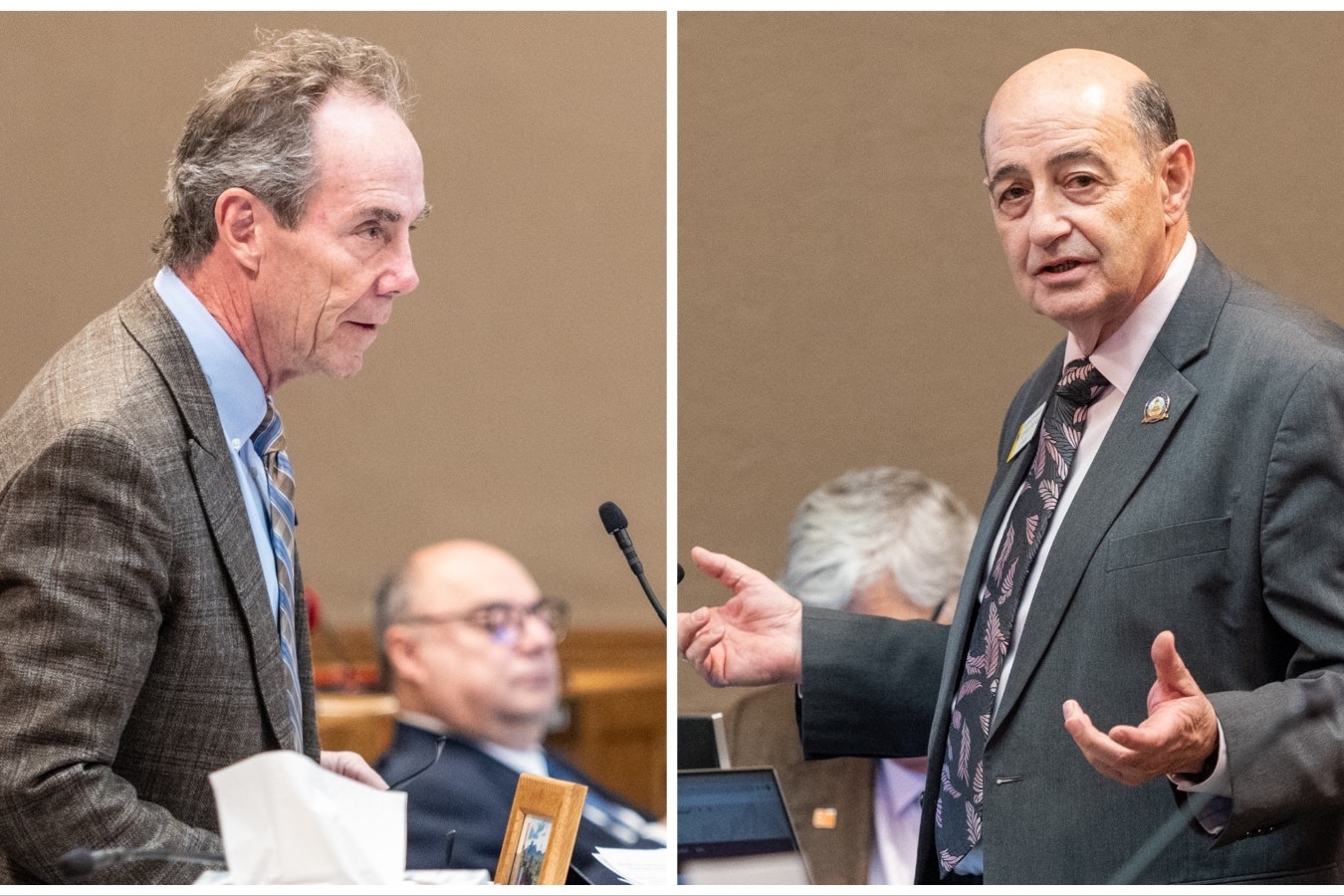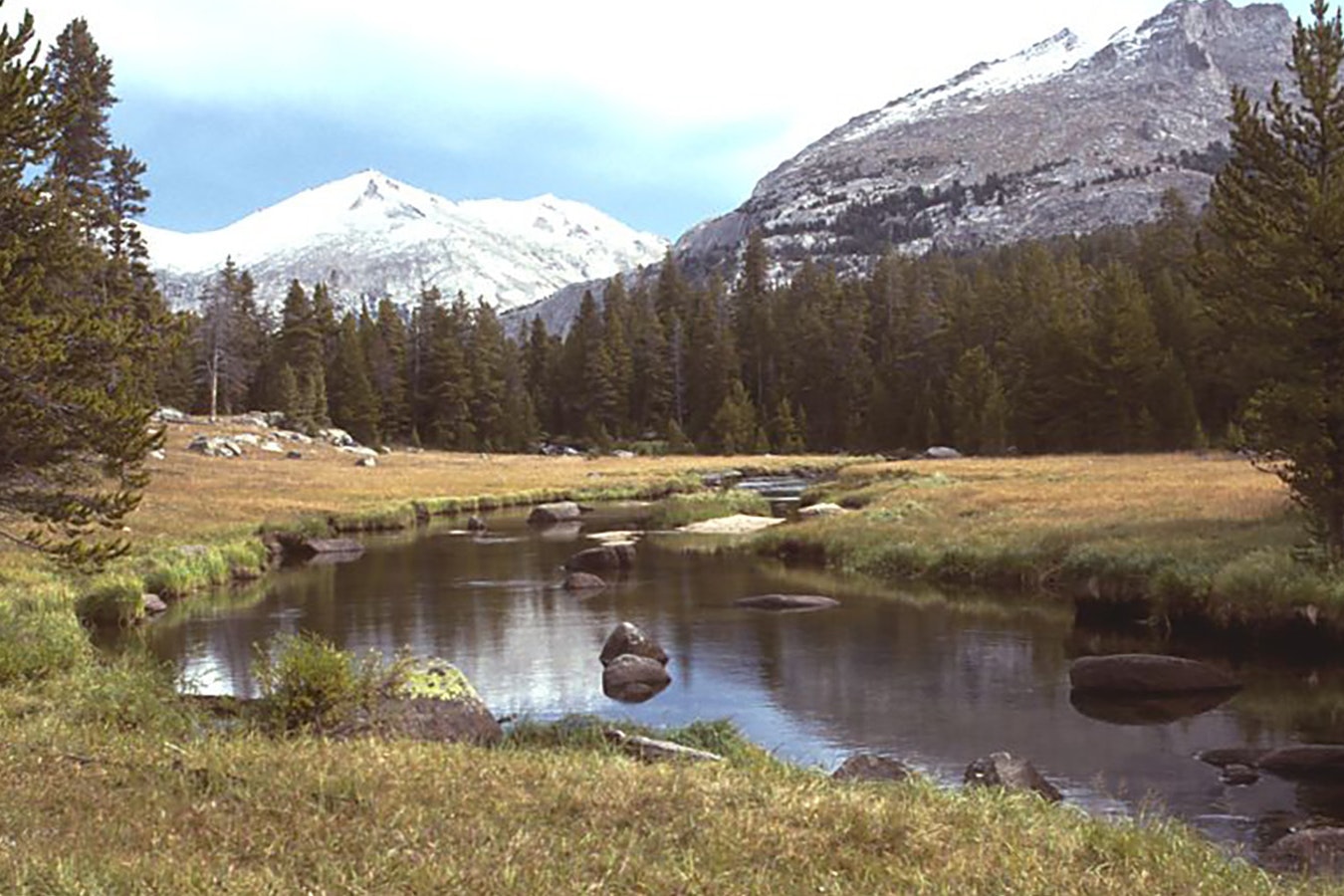Oil and gas has long been a primary economic driver in the Cowboy State. Petroleum Association of Wyoming members generated $2.67 billion in state revenues in 2022, enough to cover 76% of Wyoming’s two-year general fund budget of $3.5 billion.
PAW President Pete Obermueller highlighted the statistics during a recent seven-day hearing before Wyoming Public Services Commissioners, who are examining the 30% rate hike Rocky Mountain Power has requested.
The increase includes a 21.9% overall rate hike plus a 7.6% temporary increase for recovery of unexpectedly high fuel costs.
As much as one-third of Wyoming production comes from small producers, Obermueller said. Their production might be 2% or less individually of total state production, but they number around 400 companies, which collectively makes their production quite significant.
“These are mom-and-pop operations, producing a little at a time that collectively contribute so much to the Wyoming economy,” he said. “Make no mistake that these smaller companies will experience similar, and in some cases worse, cost impacts as a percentage of their operating margin.
“Commissioners, there’s little doubt in my mind that if the PSC accepts Rocky Mountain Power requests wholesale, a number of these small businesses will not be able to sustain their operations.”
That’s devastating not only to those companies, but to the communities across Wyoming those businesses support.
Meet Kirkwood Oil And Gas
One of those 400 mom-and-pop shops that Obermueller referenced in his testimony is Kirkwood Oil and Gas of Casper. It’s a private, family owned company that’s operated since the 1960s developing new exploratory projects in the state. It operates 300 oil and gas wells with an average production less than five barrels per day each.
“That may not sound like very much,” Kirkwood Land Manager Steve Degenfelder told the Public Service Commission. “But in 2022, the company paid over $7 million in royalties, severance taxes and ad valorem taxes to the state and various counties in Wyoming.”
While much discussion in the Rocky Mountain Power rate case has centered around residential rates, the outsized effect of a 30% hike on small mom-and-pop shops like Kirkwood deserves consideration as well, Degenfelder said.
“The largest oil and gas producers are represented by the Wyoming Industrial Energy Consumers,” he said. “And we certainly appreciate and support their work as intervenors in this case, however, there are hundreds of smaller oil and gas producers in Wyoming just like Kirkwood.”
$315,000 Monthly Electric Bill
Power costs are Kirkwood’s top expense, totaling as much as $315,000 every month. A 30% rate increase would add up to $94,000 on top of that.
“A 30% increase will inevitably put pressure on our end-of-life wells and could very well make them uneconomic, requiring them to be plugged and abandoned,” Degenfelder said. “When those wells are plugged and abandoned, the associated royalties, severance taxes and ad valorem tax, as I previously stated that would be paid, will also go away.”
That will mean tough decisions for Kirkwood, Degenfelder said. But the consequences extend well past any one small company.
Degenfelder also acknowledged that a large portion of Rocky Mountain Power’s proposed increase — 95% of it, according to company officials — was caused by increased fuel costs and demand-related third-party power purchases amid natural gas price spikes that began around the end of 2022 and continued through the beginning of 2023.
But he disagrees with the idea that temporary and extraordinary market conditions should form the basis of a long-term rate increase.
“The law requires rates to be just and reasonable,” he said. “A 30% rate increase on Kirkwood is not just or reasonable for the reasons stated above. I respectfully request the commission approve a lower rate of increase more in line with the national inflation rates of 8.8% in 2022 and 6.6% in 2023.”
Price Takers Not Price Makers
Vaquero Big Horn, meanwhile, told the Wyoming Public Service Commission that its expenses per month are about $800,000, with $300,000 of it coming from power provided by Rocky Mountain Power.
“A 30% rate increase overall, right, for the whole enchilada would be $90,000 a month,” Vaquero Regulatory Manager Niko Welch told Wyoming Public Service Commissioners. “That’s an 11.25% increase in our overall expenses.”
That adds $4 per barrel to breakeven points for the company, which already faces a $15 discount per barrel from the West Texas Intermediate prices quoted on the stock market. A $75 barrel of WTI oil is thus worth much less to them, depressing their barrels to more like $60.
“We’re looking at 5 to 6% of our wells no longer being economic in what would otherwise be a very healthy oil market,” Welch said.
If the company loses 6% of its currently producing wells, that works out to a quarter-million-dollar loss in annual tax revenues and royalties to the state of Wyoming, Welch said.
“Ultimately, we have no pricing power, right,” he said. “We’re not grocery stores or gas stations where we can pass on the cost burdens to our consumers. We can’t increase the cost to absorb that. We’re more like farmers and ranchers. Oil producers have to absorb costs.”
Larger Producers Would Get Clobbered Too
Small producers are not the only ones saying a 30% rate increase will be devastating.
Merit Energy, which, like Vaquero, operates in the Bighorn Basin, is represented by WIEC, which is representing most of the state’s largest electricity consumers, many of which are oil and gas companies.
Merit annually spends $70 million on electricity, $55 million of which comes from Rocky Mountain Power. Electricity is 70% of the company’s total expenses.
For Merit, electricity is a fixed cost, largely due to the Big Horn Basin’s geology, according to Merit Energy’s Dan Zilmer.
“Big Horn Basin is unique in that there’s a lot of water production,” he said. “That requires a lot of pumps, a lot of electricity to operate those pumps to get the oil out of the ground and move that water around.”
There’s not a lot the company can do about the energy costs of producing that particular oil, he added.
“We’ve implemented various efficiency measures to try to keep those costs in check,” he said. “But frankly, at this point for us, it’s either an on or an off switch. If it gets too high, we have to switch it off, and that means all production gets shut off.”
The proposed 30% rate increase proposed by Rocky Mountain Power would mean shutting down about 9 million barrels of oil for Merit.
“That is substantial for us, but it’s also substantial the state of Wyoming — to the state government, to the local municipalities, to the counties, to the public schools,” Zilmer said. “We estimate the cost of that to be about $60 million over the life of the properties. So, the state, the counties, the municipalities, the public schools will receive $60 million fewer tax dollars than they would have received otherwise. That is substantial to the state, to the citizens here of Wyoming.”
Midstreams Will Also Be Hurt
Pipelines are an essential part of the overall oil and gas picture. They’re the only way oil and gas can get to market economically. But pipelines are not just passive vessels carrying oil and gas. While they require less energy than trucking oil and gas to market, they still require a significant amount of energy to operate.
Bridger Pipeline, a regional pipeline company that moves energy for North Dakota, Montana and Wyoming, uses 100% electrical power for all of its main line pumping stations.
“As you can imagine, electrical power is a huge factor in our operating expense,” Bridger Director of Land and Government Ken Dockweiler told Wyoming Public Service Commissioners. “While only a small amount of our electricity comes directly from Rocky Mountain Power, we expect to spend over $5.2 million on electricity this year in Wyoming alone.”
That means even modest increases have a sizable impact for the company.
“A 30% increase would be over 1.5 million on an annual basis,” he said. “An increase in power costs can discourage production of upstream producers, as you’ve just heard, and in the midstream sector it devalues that production by pushing up the cost to get that product to market.”
Dockweiler acknowledged that higher energy prices have contributed to the 30% rate increase Rocky Mountain Power is asking for, but said he believes it’s disingenuous to claim that renewables are not part of the reason those costs have soared.
“I think if the PSC takes a closer look at the why, they may find that a significant portion of the cost impacts actually has a lot to do with (Rocky Mountain Power’s) reliance on renewable energy,” Dockweiler said. “RMP has continued to move toward an unreliable energy source, and when that energy source lets them down, they have to turn to Old Reliable — only to find themselves buying an increasing amount of coal and natural gas on the spot market, which is a much more expensive way to buy it.”
Dockweiler wants the Public Service Commission to take a hard look at how Rocky Mountain Power has been managing their supply of fuel to ensure that only prudently incurred costs are passed on to citizens and businesses.
As an example, Dockweiler pointed to Lower Valley Energy, whose rates are beating out most of the investor-owned utilities in the region.
“While I understand that a comparison with a small co-op like Lower Valley Energy may not be an apples-to-apples comparison, I think it is fair that the PSC understand why a large organization like RMP, using their expertise and leveraging their economies of scale, cannot at least compete with this small operator out of southwest Wyoming,” Dockweiler said. “The law requires rates to be just and reasonable. A 30% rate increase on our business is neither just nor reasonable.”
Read more
This is the third in a series unpacking the major issues raised in a seven-day marathon rate increase hearing for Rocky Mountain Power. Other stories:
Rocky Mountain Power Claims Astonishing 30% Rate Increase Not Due To Renewables
Wyomingites Say They Can’t Afford Rocky Mountain Power’s 30% Rate Hike
Renée Jean can be reached at Renee@CowboyStateDaily.com.





